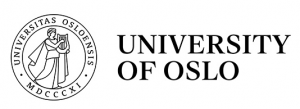UIO Post-doctoral Research Fellowship affiliated to the research initiative Eco-Emotions

Job description
A Postdoctoral Research Fellowship (SKO 1352) is available at the Department of Linguistics and Scandinavian Studies (ILN), University of Oslo.
The position is associated with the research initiative Eco-emotions: Affective Response to Environmental Change in and through Literature. The project is one of four strategic initiatives funded by the Faculty of Humanities, University of Oslo, 2024‒2028.
The main aim of the project is to discuss how humans affectively deal with environmental change, as represented in and through literature, from the past and today, in the North and globally. The current environmental crisis has made us aware of the pressing need for new insight, pertaining to the deeper emotive structures of humanity and the cognitive mechanisms that condition our relationship to the environment. The two main research questions of the project are: (1) How does literature represent and describe affective responses to environmental change? (2) What effect does literature have on our emotions and thoughts, and how can it contribute to sustainability in times of environmental transformations? By discussing these research questions, the project will harvest the yet unexploited potential of powerful, large-scale narratives from the past and today, which have the potential to activate new ways of thinking about and relating to our environment.
More about the position
The candidate will be part of the project’s core team and will contribute to its main objectives together with the team. The candidate will be responsible for addressing the project’s research questions from a contemporary perspective, i.e. by discussing either how contemporary literature narrates, expresses and represents affective responses to environment change, or by discussing the production, transmission, and/or reception of contemporary literary as a coping strategy during the current crisis, on emotional and cognitive level.
The candidate is expected to present an individual research project connected to the main project The candidate should also be interested and open to collaborative initiatives on the topic with the rest of the team.
The description of the individual project should be clear about the research questions, main sources, theories and methods of the investigation, and the planned outputs. Comparative, cross-cultural and/or diachronic projects based on contemporary material will be prioritized. Projects with an empirical component, such as survey studies, participatory observation or other appropriate methods, investigating how readers in various social spaces (book clubs, classrooms and workplaces) react to environmental literature, are also welcome.
In addition, the postdoc will be responsible for the development of an interdisciplinary course, to be taught in collaboration with the rest of the team-members. The course will be relevant for students at the faculty of humanities (literature, cultural and environmental history) but it may also be incorporated in UiO’s Sustainability certificate. The course answers a key challenge identified by the Norwegian educational system, namely to address prevailing societal challenges such as health, democracy and sustainability, in an interdisciplinary and research-based way. The course aims to have a broad outreach to future educators.
The position is available for a period of 3 years. There is a 10 % component of the position which is devoted to teaching and administrative duties.
The successful candidate is expected to become part of the research environment/network of the department and contribute to its development. The main purpose of postdoctoral research fellowships is to qualify researchers for work in higher academic positions within their disciplines.
Qualification requirements
- PhD or equivalent academic qualifications with a specialization in global and comparative literary studies in areas such as Nordic, English, Japanese, Arabic literature.
- The candidate's research project must be closely connected to the main project
- Fluent oral and written communication skills in English and a Scandinavian or other language if necessary for the successful completion of the project, see Language requirements.
- Excellent reading knowledge of the source languages relevant for the postdoc/research project.
- Personal suitability and motivation for the position
The doctoral dissertation must be submitted for evaluation by the closing date. Appointment is dependent on the public defence of the doctoral thesis being approved.
In the evaluation of the applications, emphasis will be placed on
- The project's relevance to the research questions and overall framework of Eco-Emotions
- The research project’s scientific merit, research-related relevance and innovation
- The applicant’s estimated academic and personal ability to carry out the project within the allotted time frame and contribute to the main project
- Good co-operative skills,and the ability to successfully join in academic collaboration within and across disciplines
We offer
- Salary NOK 575 400 – 657 300 per annum depending on qualifications
- A professionally stimulating working environment
- Membership in the Norwegian Public Service Pension Fund
- Attractive welfare benefits
How to apply
The application must include
- Application letter describing the applicant’s qualifications and motivation for the position
- Curriculum Vitae with grades listed (with a list of education, positions, teaching experience, administrative experience and other qualifying activities). Max 4-pages.
- Complete list of published works. If a co-authored work is included, the applicant's role and contribution must be made clear.
- Project description (approx. 3 - 5 pages, maximum 14,000 characters. See Template for project descriptions). The project description must present a feasible progress plan. It is expected that the applicant will be able to complete the project during the period of appointment
- A sample of published academic work that the applicant regards relevant for the position (max 40 pages). If the publications are co-authored, the applicant’s role must be documented with a coauthor declaration.
- Copies of educational certificates, grades, and transcripts.
- Names and contact details of three references.
Please note that all documents must be in English or a Scandinavian language.
The application with attachments must be delivered in our electronic recruiting system, jobbnorge.no. Applicants with education from a foreign university must attach an explanation of their university’s grading system. The short-listed candidates will be invited for an interview.
Formal regulations
See also Regulations concerning Post-Doctoral Research Fellowships.
Following the Freedom of Information Act (Offentleglova) § 25, Chapter 2, information about the applicant may be used in the public list of applicants even if the applicant opts out from the entry in the public application list.
No one can be appointed for more than one Postdoctoral Fellow period at the University of Oslo.
The University of Oslo has an Acquisition of Rights Agreement for the purpose of securing rights to intellectual property created by its employees, including research results.
The University of Oslo aims to achieve a balanced gender composition in the workforce and to recruit people with ethnic minority backgrounds.
Contact information
Questions regarding the position: Stefka G. Eriksen, s.g.eriksen@iln.uio.no
Questions on how to apply: Daniel Nersveen, daniel.nersveen@hf.uio.no
About the University of Oslo
The University of Oslo is Norway’s oldest and highest ranked educational and research institution, with 28 000 students and 7000 employees. With its broad range of academic disciplines and internationally recognised research communities, UiO is an important contributor to society.
The Department of Linguistics and Scandinavian Studies (ILN)is one of seven departments at The Faculty of Humanities (HF). The department conducts research, teaching and dissemination in general linguistics, Nordic languages (Scandinavian linguistics and Norwegian as a second language), multilingualism, medieval studies (Norse philology and Celtic), Nordic literature (including dissemination of literature and Ibsen-studies), and rhetoric and verbal communication. The Department hosts a socio-cognitive laboratory offering powerful equipment for various types of experiments and studies
